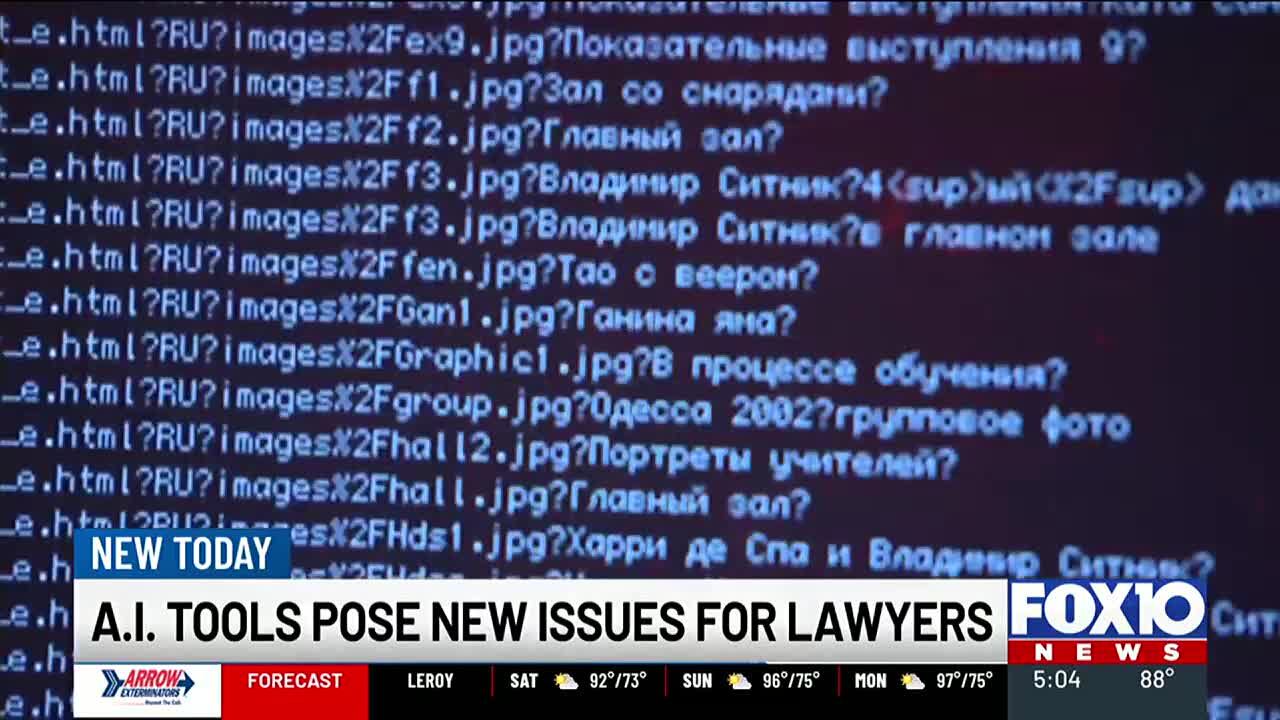The Rise of AI in the Legal Field
Artificial intelligence is transforming the legal industry, offering tools that can significantly enhance efficiency and accuracy. For Stephen Yeager, owner of Divine Litigation Services, AI has become an essential part of his business. His company specializes in digital forensics, research, and jury consulting for lawyers, and he credits AI with revolutionizing how legal professionals handle complex tasks.
What once took hours now takes minutes. Yeager describes AI as a “next-level tool” that can perform tasks no other program can, especially within the legal field. However, he emphasizes the importance of human oversight. One of the core principles of AI ethics, according to Yeager, is “validate, validate, validate.”
Real-World Challenges with AI
Despite its benefits, AI is not without its challenges. In Mobile, Alabama, a recent case highlighted the potential pitfalls of relying on AI-generated content. A lawyer representing Glennie Antonio McGee, an alleged drug “kingpin,” admitted to submitting a court filing created by a generative AI program that cited “nonexistent” cases. This incident underscores the need for careful review and verification when using AI in legal settings.
Yeager uses AI to help lawyers process large volumes of evidence, which can often run into thousands of pages. He provided an example from the case of Marco Antonio Perez, who is on death row for killing a Mobile police officer. The legal team received recordings of interviews with over 70 witnesses, and AI was used to convert these into transcripts. Yeager then asked specific questions about whether witnesses saw the officer’s badge and how many gunshots they heard. Within 30 minutes, he had the answers.
Advanced Capabilities of AI
The technology is capable of more than just basic analysis. Yeager mentioned a large medical malpractice case where he needed to quickly identify references to knee surgeries in thousands of medical records. The AI not only found two relevant results but also flagged other possible references by recognizing procedures through their five-digit current procedural technology codes.
In another instance, a van played a key role in a capital murder case in Mobile. An AI query returned 13 mentions of a van and suggested looking at other mentions of “ban,” which the program identified as a possible typo in the documents. These examples demonstrate the advanced analytical capabilities of AI in legal contexts.
AI in Drafting Legal Documents
Lawyers are increasingly using AI to assist with drafting motions and other legal pleadings. These programs can find precedents that support a lawyer’s argument and even draft the language itself. James Johnson, a lawyer, used a Microsoft product based on the open-source ChatGPT to help draft a filing seeking to postpone McGee’s drug trial. However, prosecutors later discovered that some of the cited precedents were not real.
Yeager warns that while some companies market inexpensive AI legal research programs, they may not deliver on their promises. He suggests that more expensive programs, such as those tied to Westlaw and Lexis, offer better reliability because they use proprietary legal databases and models.
Expert Warnings and the Human Element
Experts caution that even the best AI programs have limitations. Joe Patrice, senior editor at Above the Law, told FOX10 News that AI might misinterpret cases rather than create them. He emphasized that the nuanced aspects of legal work require human judgment.
McGee’s new lawyer, Jason Darley, has chosen not to use AI. He stated, “If I don’t read it with my own eyes, I don’t trust it.” This highlights the ongoing debate about the role of AI in the legal profession and the continued importance of human oversight. As AI continues to evolve, its integration into legal practices will likely depend on balancing technological advancements with the need for accuracy and accountability.







